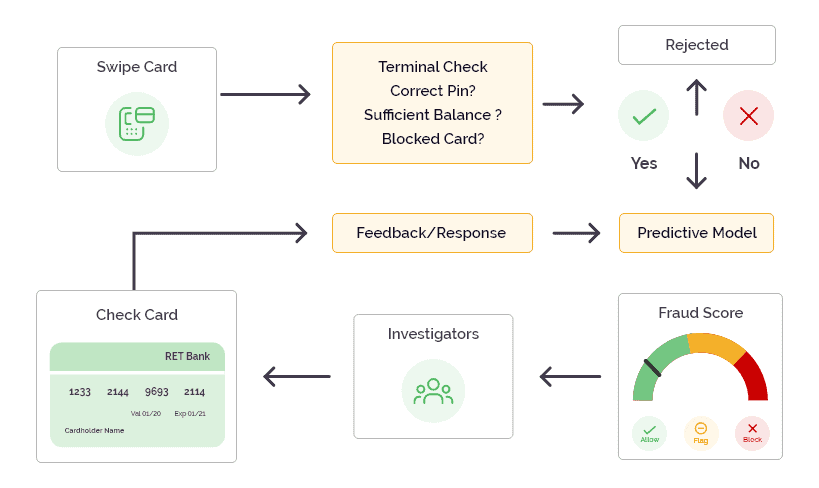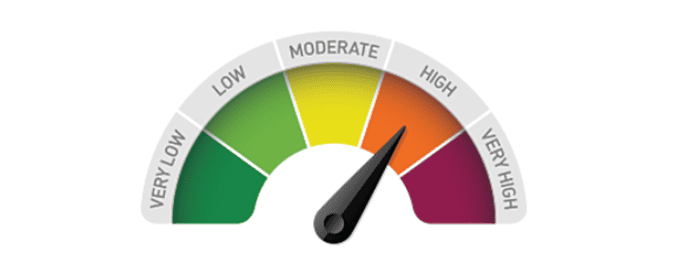Credit card fraud detection software
The convenience of shopping digitally using credit cards has become commonplace. Credit cards are a popular mode of payment not only for everyday expenses but also to pay off monthly bills, insurance premiums, and even school fees. Being used ubiquitously, attackers try to steal credit card details so they can shop at the expense of the owner.
When credit card owners see entries in their credit card bills of purchases they never made, they claim refunds, leading to chargebacks. Businesses, including merchants, credit card companies, payment service providers, and banks, are losing billions of dollars every year to credit card fraud. The consumers may suffer in the form of lower credit scores and higher fees.
Since digital is the norm today, businesses cannot rely only on offline means to conduct business. This means they must prepare themselves and deploy smart credit card fraud detection software to prevent credit card fraud and minimize the losses.
What is credit card fraud detection software?
Usually, it is the merchants that face the consequences of credit card fraud as card owners can be refunded if the fraud is reported within the stipulated time period. Therefore, merchants need credit card fraud detection software that can monitor transactions, identify anomalies in user activity – fraudulent transactions using stolen credit card details – and flag them for further investigation.
With robust credit card fraud detection software, companies can monitor user activity in real time and report fraudulent credit card transactions instantaneously to credit card companies, thereby minimizing the chances of fraud losses to the merchants and cardholders.
Credit card fraud explained
When a stolen credit card or its details are used to make unauthorized payments or request cash advance, it constitutes credit card fraud. Credit card fraud can be executed offline by physically using stolen cards. However, with the rising propensity of consumers to shop online, there has been a proliferation in card-not-present (CNP) fraud, where stolen credit card details and personal information of a user are used for illegitimate transactions.
Credit card fraud is a type of identity theft, as an attacker uses a consumer’s stolen personal information for illicit transactions.
Types of credit card fraud
Although stolen credit cards or details may be used for several illegal transactions, credit card fraud can be broadly divided into two broad categories namely: identity theft and transaction laundering.
Let’s take a closer look at both:
- Identity theft: This involves attackers using stolen credit card details combined with user’s personal information for CNP transactions, which do not require a physical credit card. Further, using these stolen credentials, attackers can withdraw money from a user’s compromised account through account takeover attack or use fake new account creation to apply for new credit cards.
- Transaction laundering: Also called credit card laundering, this credit card fraud involves attackers using a genuine merchant’s credentials to process payments for fraudulent or non-existent products through a payment network. Transaction laundering is common in marketplaces where a fake website may be used to sell prohibited goods, or launder money through fake transactions.
Credit card fraud may also be categorized according to the need for a physical card for a transaction. The two categories are as described below:
- Card present fraud: Bad actors either steal or duplicate a credit card and use this card for fraudulent transactions. Duplication of cards can be done using card skimmers to collect card details when swiped. This data is then used to create a duplicate card.
- Card-not-present fraud: This fraud does not need a physical card to complete a transaction. Instead, stolen credit card details, namely: card number, name of the cardholder, and CVV, are used on digital platforms for illegitimate transactions.
What is credit card fraud detection?
The process of using tools and software solutions to identify and take appropriate measures to prevent or mitigate the effects of credit card abuse is called credit card fraud detection.
Today, credit card fraud detection software uses the latest technologies such as artificial intelligence and machine learning to analyze a large amount of data that helps make data-backed decisioning on detection of fraud attempts.

Measures to step up credit card fraud detection
There are several measures that can help merchants to proactively fight the growing challenge of credit card fraud. To improve credit card fraud detection capabilities, businesses can take the following measures:
- Ensure that the platform used for processing payments and storing customer data are PCI-DSS compliant.
- Use verification methods such as CVV and AVS.
- Use solutions like 3-D Secure to authenticate customers with their banks.
- Deploy technology-driven credit card fraud detection software.
- Monitor platforms for account takeover and new fake account creation attempts.
How do credit card fraud detection software work?
There are several types of credit card fraud detection software available on the market today. Merchants can choose the most appropriate credit card fraud detection software that meet their unique business needs.
Most credit card fraud detection software are AI-driven or use rules-based risk scoring and velocity checking. Merchants can create rules according to the threats they face and identify suspicious users for further investigation.

With velocity checking, credit card fraud detection software allows merchants to identify suspicious transactions such as those that occur rather quickly in a short period of time, or have some elements of information common among them.
What makes a good credit card fraud detection software?
Identifying anomalous behaviors and seemingly fraudulent transactions to proactively stop credit card fraud attempts is the main objective of credit card fraud detection software. Therefore, businesses may consider evaluating the following parameters while choosing a credit card fraud detection software:
- Accuracy: Consider using ML-driven credit card fraud detection software as they offer more accurate credit card fraud detection.
- Reduce false positives: A credit card fraud detection software must help reduce false positives that can degrade user experience.
- Reduce manual labor: The incumbent credit card fraud detection software should be able to reduce the burden of manual reviews, such that security teams can focus on more productive activities.
- Adaptable: One of the most important hallmarks of a good credit card fraud detection software is the ability to adapt to the evolving threat types to be able to thwart new threats in the long-term.
- Vendor support: Critical to the fight against credit card fraud, merchants should look for a provider that is available round-the-clock for the needed support.
Fight credit card fraud with Arkose Labs
With its innovative approach to fighting existing and evolving threats, Arkose Labs helps merchants and entities in the card payment process protect their users and business interests from the scourge of credit card fraud.
Leveraging the latest technologies such as artificial intelligence, machine learning, behavioral biometrics, and so forth, and combining them with scores of digital parameters, Arkose Labs secures the sign-up and log in touchpoints of the business network to accurately distinguish between risky and genuine users. The incoming traffic is triaged based on the real-time risk assessment of the users.
Suspicious users are intercepted and administered context-based 3D challenges. Automated traffic comprising bots and scripts instantly fail as they cannot solve Arkose Matchkey challenges at scale. This ensures, attackers fail in their attempt to scale up the attacks. Persistent malicious users are engaged in incrementally complex challenges, to such an extent that they need to spend a lot of time and resources trying to clear the challenges at scale, but without any success. Ultimately, with no returns in sight, these malicious users give up and move on to softer, unprotected targets.
Further, Arkose Labs offers 24x7 support and SOC assistance to help its partners analyze and mitigate threats as and when detected. Arkose Labs also shares actionable insights and raw signals that empower businesses to make data-backed, explainable decisions. This helps security teams improve future capabilities to ward off emerging threats and ensure long-term protection.
